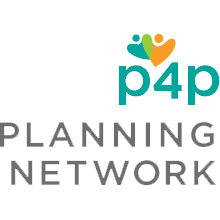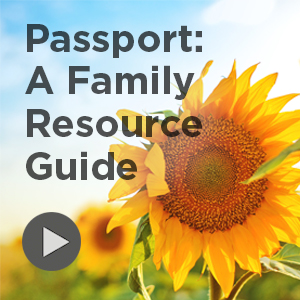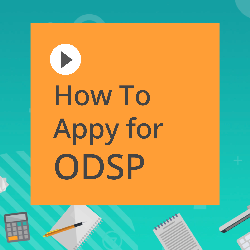
GUIDE TO FIGURING OUT FUNDING AND SUPPORT
There was a time when a person living with a disability and their family didn’t have to worry about financial security. Everything was taken care of by the provincial government. In fact, if you gave birth to a child a with a disability many years ago, doctors and other professionals would recommend you admit your child to an institution. From a caregiver’s perspective, the government took care of everything.
When the institutions closed, community agencies took over and provided day programs and group homes.
Well times are different now. We now know that institutions and group programs offer very limited opportunities and many people want more. Today, the focus is on individualized funding that provides money directly to the person so they can create the opportunities and supports that will serve them best. However, governments in most developed countries rarely provide sufficient resources that a person with a disability requires to live a full life.
If you want to ensure your son or daughter with a disability has the support they need as well as long term financial security, it will be up to you to cobble together a plan from a number of sources, including any possible contributions from family members and friends. Stretching any and all available funding matters a great deal, and many families do so creatively with good results.
For Children
SSAH
The program is based on the understanding that family members are often primary caregivers for children with a developmental or physical disability. Funding is provided to families for purchasing supports not available elsewhere within their community—for special services within or outside the family home. Goals of this funding include:
- Helping kids expand current abilities or to learn new skills (communication, behavioural, daily living, mobility, etc.)
- Providing family relief and respite support
- Reinforcing personal dignity, independence and community participation of the child
- Reducing the need for intensive or intrusive social services in the future
The amount of funding a family can receive depends on the number and types of services needed, whether these resources are available in their community, and which supports or services they already have. For families to be eligible, the child with a disability:
- Must live in Ontario and be under 18 years of age
- Have an ongoing developmental and/or physical disability as documented by a physician
- Be living at home with their family (or if not living at home, not be receiving help from other residential services)
- Require more support than most families are able to provide
For more information on SSAH, check out the program guidelines. Once you have determined that your family qualifies for funding, download and complete this application form, and send it to your nearest regional office.
EKO
(formerly The Ontario Association of Children’s Rehabilitation Services)
For over 40 years this Canadian non-profit has provided smart creative approaches to supports and services so that children with a disability and their families can live their best lives. EKO collaborates with a wide range of service providers, researchers, clinicians, members, partners and government representatives. All its members are government-funded organizations providing services in the “ecosystem” of child development and rehabilitation, based on needs within a specific community. Among the services provided:
- Physical and Occupational Therapy
- Speech and Language Therapy
- Psychology and Behavioural Therapy
- Respite support, family education
- Service coordination
- Developmental Pediatrics
- Adaptive Augmentative Communication
- Special services at home
To access support within each of the children’s treatment centres, people generally need to be referred by their doctor for a particular service (while some members offer programs such as summer camps or educational opportunities for the general public, in most cases they support families who have been referred for specific purposes). All member organizations listed on the EKO website are staffed by experienced and licensed professionals providing treatment and support to children, youth and families in every region of Ontario.
To find an EKO member agency in your area CLICK HERE.
For Adults
DSO
The Developmental Services Act, passed in 1974, was a welcome change in how the Ontario government managed developmental services. This event marked an important turning point by emphasizing greater independence, social inclusion, and personal choice for people living with a developmental disability. Today DSO helps adults with a developmental disability and their families find services and supports within their communities in order to meet the goals mentioned above. Wherever your family lives within this province, DSO can help you connect with:
- Residential supports
- Caregiver respite
- Community participation supports (such as for volunteering or employment)
- Professional and specialized services
- Access to the Passport Program and person-directed planning
- And various other supports to assist individuals to become more involved in their communities
Passport
One of the most important roles of DSO is connecting people to what is called the Passport Program. This funding is for people with a developmental disability who are 18-years-old or older, who need support to participate in the community while they are still in school; or for those who have left school and are living on their own, with family or in a supportive living arrangement. Once a person is eligible for adult developmental services, they will automatically be approved for $5,000 annually in direct funding. The Passport Program is meant to:
- Help young people transition from school to adult life
- Promote social inclusion through the use of community resources
- Increase opportunities to exercise personal choices and decision-making
- Foster independence by building upon an individual’s abilities and developing new skills
It is important to note that demand for this funding is high and the wait list is currently very long. Passport funding is prioritized—meaning the amount of funding and time involved to receive funding depends on the information provided on the DSO form. Each person has a different level of need and risk depending on their personal situation, compared to other people across the province. Five key areas are considered: the person’s current living situation, their behavioural support needs, medical and personal support needs, and the circumstances of the caregiver. Depending on your loved one’s situation they could receive additional funding – this will depend on the type and number of services needed and what kind of support(s) the person and family is already receiving.
Once this funding in place, many families use it in creative ways, with very good results! For example, some people choose to use a portion of passport funding toward Independent Facilitation or Person Directed Planning – both of which can significantly enhance quality of life and long-term security for an adult with a developmental disability. Check out the stories at the bottom of this page to find out more.
For additional links and a more detailed overview of the Passport program, CLICK HERE.
LHINs
Families with children with a medical disability can also receive support through Ontario’s Ministry of Health and through their Local Health Integration Network Home and Community Care Services (LHINs). This free service coordinates many different supports for people with a disability (and others, such as the elderly) who need personal and home-based services to be able to live independently in the community. LHINs work with physicians and many other health care professionals to provide information about care options in different regions, including:
- Identifying support needs, and exploring options best suited to each personal situation
- Gathering information about home, community support services and residential care in your area
- Determining eligibility for government-funded services and settings
- Arranging for delivery of government-funded home and community support services
- Getting on the appropriate waiting lists
- Living independently at home
For families with children with a disability LHINs can provide important help with:
- Assessing, authorizing and arranging for school health support services for children
- Arranging for visiting health and professional services in your home
- Providing information and referrals to other available community agencies and services
- Coordinating a variety of services including physiotherapy, speech-language therapy, dietitian services, pharmacy services, diagnostic services, social work, personal support and homemaking
ODSP
The ODSP is a monthly financial support provided to people with a disability by the provincial government for basic living expenses like rent and food. Some people may receive additional money to pay for medical, dental and nutritional or dietary needs. As of 2016 a single person on ODSP can receive up to $1,128 per month. To be eligible the person must:
- Be 18 years or older and live in Ontario
- Have been diagnosed with a disability under the Ontario Disability Support Program Act
- Have less than $40,000 in “non-exempt assets” or things a person owns, such as money and investments
Of course, most families want to freely provide loved ones who are vulnerable with a disability with all the financial support possible, but also want to ensure their relative will not lose ODSP benefits as a result. The assets below are exempt (do not count) toward the $40,000:
- Vehicle principal residence
- Registered Disability Savings Plan (RDSP)
- Registered Education Savings Plan (RESP)
- Discretionary trust, or what is also called a Henson Trust
- Non-discretionary trust (sometimes referred to as a government trust, inheritance trust, or shelter trust)
The fact is, most adults with a disability want to work. Many people with a disability work part time or for modest pay and therefore still need ODSP income to meet their daily living expenses (especially these days when living in a larger city is so expensive). When earning money from employment, ODSP rules mean that up to 50% of their paycheque could be deducted from their monthly ODSP. Some people may be eligible for extra benefits to help out with work-related expenses such as transportation or clothing. Learn more about ODSP in this video:
ODSP rules are complex and do change from time to time—especially when a new government is elected. It is well worth taking the time to understand the rules, to make sure this important benefit remains protected for daily living and long into the future, when most adults with a disability who are aging without primary caregivers will need this support more than ever.
For additional links and a more detailed overview of the Ontario Disability Support Program, including any recent changes, CLICK HERE.
RDSP
The Registered Disability Savings Plan was introduced in 2007. The RDSP is unique to Canada and is widely considered the most important financial planning tool available for anyone concerned about the longterm financial wellbeing (and therefore quality of life) of a person with a disability. There is no cost to open an RDSP, and the financial benefits begin right away:
- RDSP recipients can take advantage of the Canada Disability Savings Grant. $1,500 in personal contributions can trigger a grant of up to $ 3,500 each year to a maximum lifetime grant of $ 70,000.
- Additionally, those living on less than $30,000 annually will receive $1,000 each year automatically for up to 20 years through the Canada Disability Savings Bond.
The sooner you can open up an RDSP the better, because there are many ways smart ways to invest the money or withdraw funds for specific purposes to support the person with the disability to live a good, secure life. To be eligible the beneficiary (who the plan is meant for):
- Must be under 60 years of age
- Live in Canada
- Already be eligible for the Disability Tax Credit
- Have a Social Insurance Number
Because anyone at all can contribute to an RDSP, all other family members and friends are free to help out the person financially. Disability benefits like ODSP are not affected by having an RDSP. Best of all, the person with the plan can choose what to do with the money–there are no restrictions on how the money is spent.
After opening an RDSP, many people are surprised at how quickly the money can grow. Once you have your RDSP in place, there are important things to know about managing it, your plan holder responsibilities. Again, while time and effort is needed to understand how everything works, we recommend jumping right in as soon as possible. Whether your child is still very young, or you are just now considering the RDSP for an older adult with a disability, the RDSP is a must for most people.
For a more detailed introduction to the RDSP, CLICK HERE. For what to do after you have opened your RDSP, CLICK HERE.




